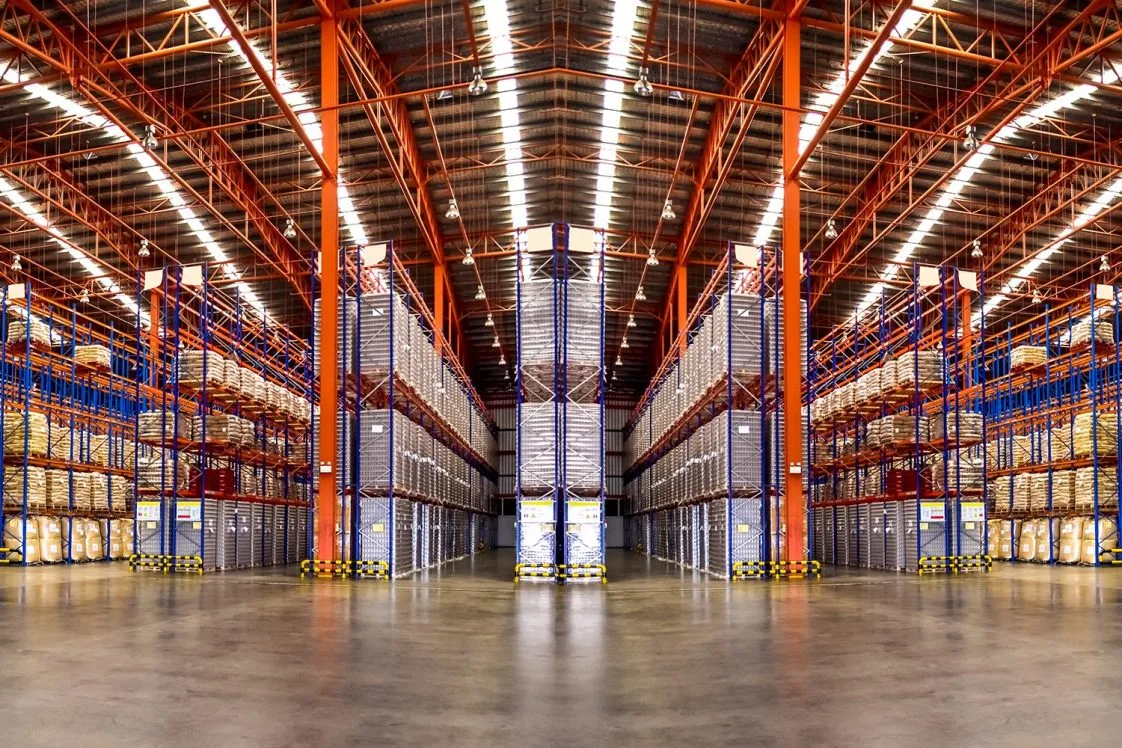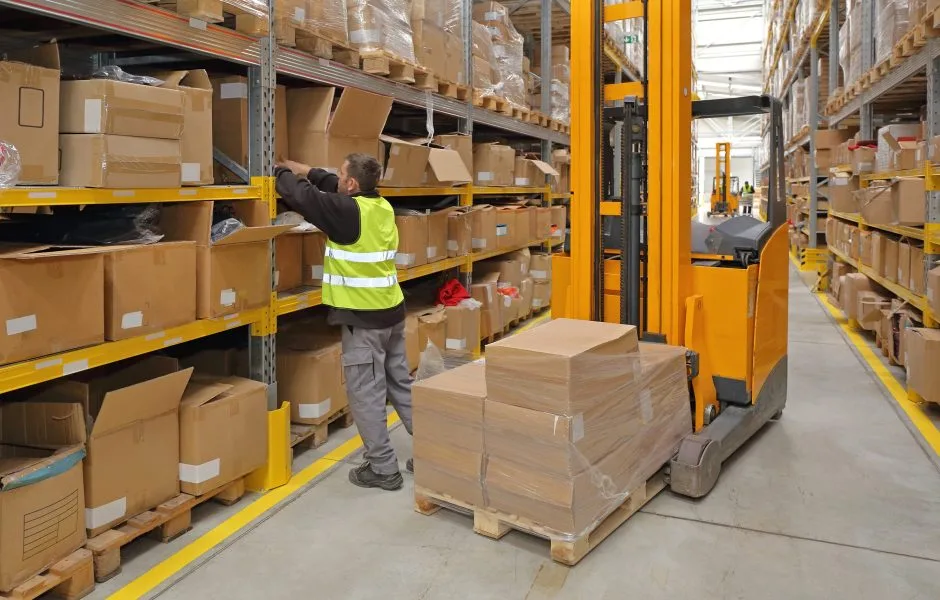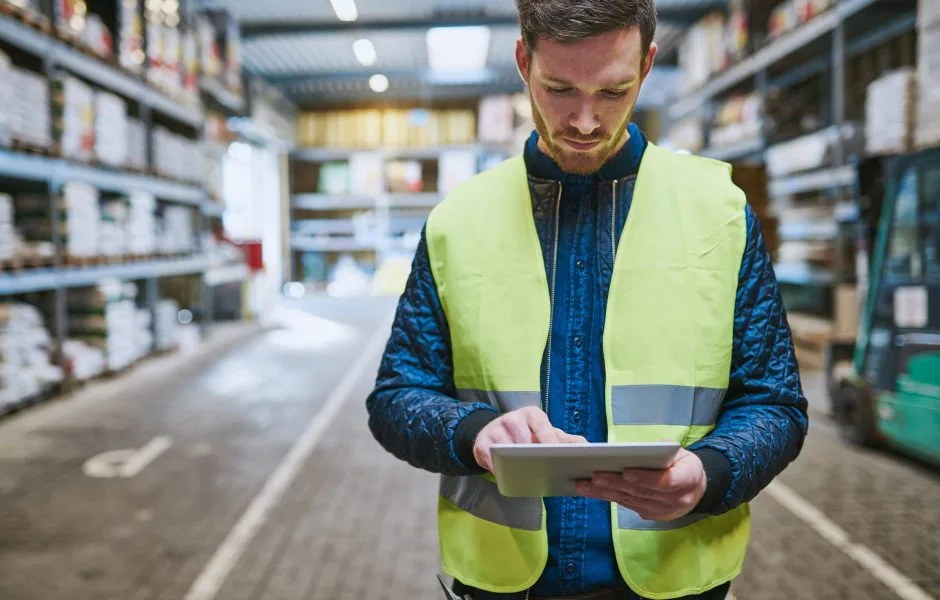Navigating the Path to Excellence: A Comprehensive Guide to B2B Fulfillment

Efficiency and precision are fundamental in modern commerce, particularly within the domain of business-to-business(B2B) transactions. B2B fulfillment, the process of delivering goods and services to businesses, is a cornerstone for seamless operations, customer satisfaction, and sustainable growth across industries.
Understanding eCommerce B2B Fulfillment
B2B fulfillment encompasses all the activities involved in receiving, processing, and delivering orders from one business to another. Unlike business-to-consumer (B2C) transactions, which typically involve smaller order volumes and individual customers, B2B transactions often entail larger quantities like bulk orders or wholesale orders, complex logistics, and customized solutions tailored to the specific needs of business clients.
B2B vs. B2C Fulfillment: Key Differences
In eCommerce fulfillment, B2B and B2C orders present contrasting dynamics. B2B fulfillment services cater to corporate clients, featuring fewer but larger orders with predictable demand patterns and requiring customization for business needs. These orders often involve negotiated pricing, specialized payment terms, and efficient shipping methods tailored to bulk shipments.
On the other hand, B2C orders serve individual consumers with sporadic and unpredictable demand, emphasizing standardized pricing, convenient payment options, and fast, trackable shipping to enhance the shopping experience. B2B fulfillment relies on accurate inventory management and tailored solutions, while B2C fulfillment prioritizes speed, convenience, and visibility in delivery processes to meet the unique expectations of business clients and individual consumers alike.
Key Components of B2B Fulfillment
- Order Management: Efficient order management lies at the heart of B2B fulfillment. It involves processing incoming orders, verifying inventory availability, and orchestrating the movement of goods from warehouses to customers. Advanced order management systems leverage automation and integration to streamline workflows, minimize errors, and accelerate order processing times.
- Inventory Management: Effective inventory management is essential for meeting the diverse demands of B2B customers while minimizing holding costs and stockouts. B2B fulfillment operations rely on sophisticated inventory management solutions that provide real-time visibility into stock levels, demand forecasts, and replenishment schedules. By optimizing inventory levels and distribution networks, businesses can enhance responsiveness and reduce fulfillment lead times.
- Warehousing and Distribution: The strategic placement of warehouses and distribution centers is critical for optimizing supply chain efficiency and reducing transportation costs in B2B fulfillment. Companies often leverage a network of regional hubs to expedite order fulfillment and enhance proximity to customers. Modern warehousing practices embrace automation, robotics, and data analytics to improve inventory accuracy, order picking and packing services, efficiency, and overall operational agility.
- Transportation and Logistics: Transportation plays a pivotal role in B2B fulfillment, facilitating the movement of goods between suppliers, manufacturers, distributors, and end customers. From trucking and rail freight to air cargo and maritime shipping, businesses must select the most cost-effective and reliable transportation modes to meet delivery deadlines and service level agreements (SLAs). Collaborative logistics partnerships and route optimization technologies help streamline transportation operations and mitigate supply chain disruptions.
Emerging Trends in B2B Fulfillment Solutions
- Digital Transformation: The digitalization of B2B commerce is reshaping fulfillment processes as businesses embrace eCommerce platforms, electronic procurement systems, and cloud-based supply chain solutions. Digital transformation enables seamless order placement, real-time inventory visibility, and data-driven decision-making, empowering businesses to adapt to evolving customer preferences and market dynamics.
- Omnichannel Fulfillment: B2B buyers increasingly expect a seamless omnichannel experience, where they can place orders across multiple channels and receive consistent service regardless of their preferred touchpoints. To meet these expectations, companies are investing in integrated fulfillment systems that synchronize inventory, orders, and customer data across online storefronts, mobile apps, call centers, and brick-and-mortar outlets.
- Personalization and Customization: As B2B markets become more competitive, personalization emerges as a key differentiator in fulfillment excellence. Businesses are leveraging data analytics, machine learning, and artificial intelligence to tailor product offerings, pricing models, and delivery options to the unique needs of individual customers. Personalized fulfillment experiences enhance customer loyalty, drive repeat business, and foster long-term partnerships.
- Sustainable Practices: Sustainability considerations are increasingly shaping B2B fulfillment strategies as companies seek to reduce their environmental footprint, minimize waste, and comply with regulatory requirements. From eco-friendly packaging materials and energy-efficient transportation to carbon-neutral supply chains and reverse logistics programs, sustainable practices are integral to building a responsible and resilient supply chain ecosystem.

Strategies for B2B eCommerce Fulfillment Success:
- Invest in Technology: Embrace cutting-edge technologies such as cloud computing, artificial intelligence, and the Internet of Things (IoT) to modernize B2B fulfillment operations, enhance efficiency, and unlock actionable insights across the supply chain.
- Prioritize Collaboration: Foster strong partnerships with suppliers, B2B fulfillment providers, and technology vendors to build a collaborative ecosystem that enables seamless coordination, information sharing, and innovation in B2B fulfillment.
- Focus on Customer Experience: Place the customer at the center of B2B fulfillment strategies, striving to deliver exceptional service, personalized experiences, and timely communication throughout the order lifecycle.
- Continuously Improve Processes: Adopt a culture of continuous improvement, leveraging data analytics, performance metrics, and feedback mechanisms to identify bottlenecks, optimize workflows, and drive operational excellence in B2B fulfillment.
- Anticipate Future Trends: Stay ahead of the curve by monitoring industry trends, consumer behaviors, and technological advancements that may impact B2B fulfillment in the future. Proactively adapt your strategies and capabilities to seize new opportunities and navigate challenges in an ever-evolving business landscape.
What to Look for in B2B Order Fulfillment Services
Choosing the right third-party logistics (3PL) provider is a critical decision for businesses engaged in business-to-business commerce. A reliable 3PL partner can significantly impact the efficiency, scalability, and competitiveness of B2B fulfillment operations. This article outlines key factors that businesses should consider when evaluating potential B2B 3PL providers to ensure a successful partnership and seamless logistics management.
- Industry Expertise and Experience: Look for a B2B 3PL provider with extensive experience and expertise in your industry vertical. A provider familiar with the unique requirements, regulations, and challenges of your industry is better equipped to deliver tailored solutions that meet your specific needs. They should have a proven track record of success in managing B2B logistics for companies similar to yours, demonstrating their ability to handle complex supply chain requirements effectively.
- Comprehensive Service Offerings: Evaluate the range of services offered by the 3PL provider to ensure they align with your B2B fulfillment needs. A full-service 3PL should offer a comprehensive suite of logistics solutions, including warehousing, transportation, inventory management, order fulfillment, and value-added services such as kitting and assembly, labeling, and returns processing. Having access to a diverse range of services from a single provider streamlines operations and reduces the need to manage multiple vendors.
- Scalability and Flexibility: Choose a B2B 3PL provider capable of accommodating your business’s growth and evolving needs over time. Scalability is crucial, especially for businesses experiencing seasonal fluctuations or rapid expansion. The provider should have the infrastructure, resources, and network to scale operations up or down seamlessly in response to changing demand levels. Additionally, look for flexibility in service offerings and contract terms to adapt to shifting market dynamics and business requirements.
- Technology and Innovation: Assess the technological capabilities and innovation mindset of the B2B 3PL provider to ensure they can support your logistics operations with advanced tools and solutions. A technologically advanced 3PL leverages automation, data analytics, and cloud-based platforms to optimize processes, enhance visibility, and improve decision-making. Look for features such as real-time tracking, inventory visibility, and predictive analytics to streamline B2B fulfillment and drive operational efficiency.
- Network and Geographic Reach: Consider the geographic footprint and network capabilities of the B2B 3PL provider to ensure they can effectively serve your customers across different regions and markets. A provider with a strategically located network of warehouses, distribution centers, and transportation hubs can minimize transit times, reduce shipping costs, and enhance order fulfillment speed. Evaluate their ability to reach key B2B markets and meet delivery commitments reliably.
- Quality of Customer Service: Assess the quality of customer service and support offered by the B2B 3PL provider to ensure a positive and collaborative partnership. Look for responsiveness, accessibility, and proactive communication from the provider’s team, especially during peak periods or when addressing critical issues. A dedicated account manager or customer support representative should be available to address your inquiries, resolve concerns, and provide regular performance updates.
- Reputation and References: Research the reputation and track record of the B2B 3PL provider by seeking references, customer testimonials, and industry accolades. Look for case studies or success stories highlighting their achievements in delivering value-added solutions, driving cost savings, and improving supply chain performance for other B2B clients. Additionally, consider conducting site visits or requesting references to gain firsthand insights into the provider’s capabilities and reliability.

How the Right B2B Order Fulfillment Provider Can Help Your Business Succeed
Having the right B2B order fulfillment provider can be a game-changer for your business. Partnering with a fulfillment company like Radial can offer numerous advantages that can help your business succeed in today’s competitive landscape.
- Advanced Order Management: Radial’s sophisticated order management system (OMS) serves as the central hub for processing, tracking, and fulfilling B2B orders. The OMS seamlessly integrates with multiple sales channels, including eCommerce platforms, marketplaces, and enterprise resource planning (ERP) systems, allowing businesses to manage orders from various sources in real time. With customizable workflows and automated order routing capabilities, Radial’s OMS enables B2B sellers to efficiently process orders, allocate inventory, and prioritize shipments based on customer preferences and service level agreements (SLAs).
- Scalable Warehouse Operations: Radial’s state-of-the-art warehouse management system (WMS) empowers B2B sellers to optimize their warehouse operations for maximum efficiency and scalability. By leveraging advanced automation technologies, such as robotics and machine learning, Radial’s WMS streamlines order picking, packing, and shipping processes, reducing labor costs and fulfillment lead times. Additionally, Radial’s network of strategically located fulfillment centers enables businesses to reach their B2B customers faster and more cost-effectively, regardless of their geographic location.
- Flexible Inventory Management: Radial’s inventory management solutions provide B2B sellers with real-time visibility into their inventory levels, demand forecasts, and replenishment needs. With centralized inventory control and forecasting algorithms, businesses can optimize their stock levels, minimize stockouts, and prevent overstocking of slow-moving items. Moreover, Radial’s inventory optimization tools help B2B sellers make data-driven decisions regarding product assortment, pricing, and promotions, ensuring that they meet the evolving needs of their corporate clients while maximizing profitability.
- Seamless Omnichannel Integration: Radial enables B2B sellers to deliver a seamless omnichannel experience to their customers by integrating their online and offline sales channels. Whether businesses sell through eCommerce websites, mobile apps, or traditional brick-and-mortar stores, Radial’s omnichannel commerce platform synchronizes inventory, orders, and customer data across all touchpoints. This integration not only enhances customer convenience and satisfaction but also enables businesses to capture valuable insights into customer behavior and preferences, driving personalized marketing campaigns and product recommendations.
- Enhanced Customer Support: Radial’s customer care services provide B2B sellers with dedicated support teams trained to handle complex inquiries and resolve issues promptly. Whether it’s order status inquiries, product troubleshooting, or returns processing, Radial’s customer care specialists offer professional assistance to ensure a positive experience for business clients. By outsourcing customer support functions to Radial, B2B sellers can focus on their core business activities while maintaining high service levels and customer satisfaction ratings.
Partner with Radial
In an era defined by rapid digital transformation, evolving customer expectations, and global supply chain disruptions, mastering the art of B2B fulfillment is essential for businesses to thrive in competitive markets. By embracing innovation, collaboration, sustainability, and forward-thinking strategies, companies can unlock new levels of efficiency, agility, and customer satisfaction in the journey from order placement to delivery. As B2B commerce continues to evolve, those who embrace change and invest in the future of fulfillment will emerge as leaders in their industries, driving growth, resilience, and prosperity in the interconnected world of business.
Mastering the art of B2B fulfillment is essential for your company to thrive in competitive markets. As you navigate through digital transformations and adapt to evolving customer expectations, finding the right fulfillment provider becomes paramount. That’s where Radial comes in. We offer tailored solutions designed specifically for B2B businesses and eCommerce enterprises like yours, ensuring seamless order fulfillment every step of the way when you outsource fulfillment.
With Radial’s innovative technology and expertise at your disposal, you can unlock unprecedented levels of efficiency and agility in your B2B fulfillment operations. Our comprehensive suite of services, including order management, inventory optimization, and logistics solutions, empowers you to streamline processes, reduce costs, and exceed your customers’ expectations.
Moreover, our commitment to collaboration and sustainability aligns perfectly with your business values and goals. By leveraging our forward-thinking strategies and embracing change, you can position yourself as a leader in your industry, driving growth, resilience, and prosperity in today’s interconnected world of business.
Whether you’re a B2B enterprise looking to optimize your fulfillment processes or an eCommerce business striving to enhance customer satisfaction, Radial is your trusted partner for success. Embrace the future of fulfillment with Radial and unlock new opportunities for growth and innovation in the ever-changing landscape of B2B commerce.
Radial can help with B2B fulfillment.
